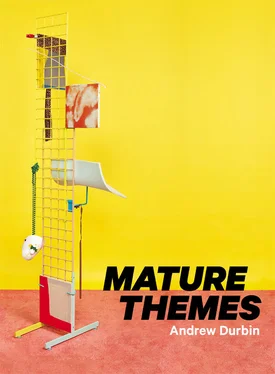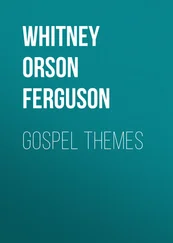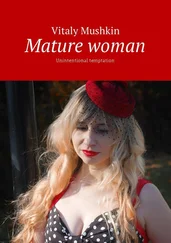1
LIL WAYNE RUINED DEATH.
In spring 2013, the rapper near fatally overdosed on sizzurp, an hallucinogenic mixture of fruit soda and cough syrup, fortified with codeine and promethazine. He seized up onstage and shook in his leopard-print tights till almost electric departure from stage and world, was rushed to the hospital and emerged alive, but not before nearly disappearing forever into a fizzy, pharmaceutical afterlife.
Lil Wayne’s “Love Me” describes women as agents of disappearance. The song not only privileges the male subject position in the various strata of intercourse, it valorizes the female as the necessary yet problematic participant that disrupts sex by her intervening consciousness. The female is an amnesiac object and the silent, organizing principle that enables Lil Wayne to proceed in the bliss of unthinking until he comes and forcibly “comes to his senses,” at which point he abstracts the woman into the multitude of frictional figures who oppose him. His bitches who love him obliterate his need to maintain absence of responsibility with regard to the milieu of differing relationships that constitute his socio-sexual life. It’s only when they actively engage that he returns to himself, to everything, wasted on sizzurp in the AM.
WOMEN RUINED THE RETURN.
In summer 2008, two NYPD officers accompanied an intoxicated East Village woman as she made her way home from a local bar. They entered her apartment with her, left, and returned several times throughout the night to rape her while she was barely conscious. She sued the NYPD, but the court found neither the surveillance tapes, which showed the police officers entering and leaving her home multiple times, nor her testimony sufficient cause to convict the two men of rape. The NYPD nevertheless dismissed the cops in an effort to placate the mounting tensions between it and the public it “serves and protects.” Shortly thereafter, the two police officers left the city, the woman disappeared from the media that followed her, and I was detained in Fort Greene after I asked the police officer who had stopped me for an open container violation why he wasn’t in the East Village raping women.
PRESSURE RUINED PROCEDURE.
Ten years after 9/11, the NYPD conducted numerous illegal operations against the occupiers camped near the site of the World Trade Center. I think you might remember this time, when we stood together in general assembly for hours and, later, waited for free pizza. What was, at first, a simple act of communalization became the far more mysterious idea, lurking around us, of the possible futures shooting up from the ground everywhere to form or demolish prisons, depending on your perspective. The NYPD dragged the protesters from their tents and into a mild winter. During the next year, the courts dropped the charges against many of the students, teachers, union workers, unsheltered people, and other activists after they became overburdened by the numerous legally-questionable cases. In those days, it was “fuck the police” and nothing else.
THE OVERBURDENED RUINED SYSTEM.
The poet Joan Retallack’s poem “AID/I/SAPPEARANCE” makes language disappear in a procedure that virally decomposes the found jargon of scientific inquiry, mimicking the fracturing of the body’s defensive mechanisms by the AIDS virus. One time, I had tea with a friend my age living with HIV, and he told me he was struggling, over tea he was looking at me while a fire engine got stuck in traffic next to us and he said, though I could hardly hear him, he was struggling with. Rivulets of clouds formed in the sky above us. It is never summer anymore, it is only the eroded time of atypical weather. I was sitting in the café, reading a poem by Joan Retallack while Lil Wayne’s “Love Me” played so loudly in someone else’s headphones that I could hear the song several tables away. I thought (forgetting what my friend was struggling with), this song sums up some degraded feeling of the promoted self, jet set and breeze in the mix of medicinal waste, all to get the fuck back, as another poet, Lawrence Giffin, once put it, into that burning (private) plane.
MY PRIVATE PLANE RUINED JARGON.
In an extract of a paper on Retallack’s poem, the academic Bryan Walpert, whose work I don’t know, writes, “Retallack uses two connected lines of the postmodern critique of science — linguistic slippage and paradigm-dependency— not to subvert or to critique science as an end in itself but to return,”
summer in spring
winter in fall
spring in winter
fall in summer,
“but to return,”
spring in summer
fall in winter
winter in spring
summer in fall
“but to return attention to the human subject, specifically in the context of AIDS,”
fall in winter
spring in summer
summer in fall
winter in spring
“but to return” to the plane that had been set on fire by Lil Wayne’s retinue of sociopaths (a celebrity is someone who desires to tell a joke that ends in the death of the entire world external to himself/herself) after they poured sizzurp all over the aisle seats and dropped matches onto the soaked leather.
2
You could say that by this point the night was in an advanced state of decomposition, illuminated by the flaming jet the local fire department could not put out. We stood by the runway, near the tall security fence, and drank Four Loko in the cool breeze.
SOMEONE RUINED ANONYMITY.
To return to my friend in summer, which was a kind of spring, he was telling me he was struggling with paying his bills while remaining an artist. What’s become a cliché reverts to a very powerful reality when it’s married to economics. We both have no money and as long as we’ve known each other (almost ten years) that has been the case. When we first met he was addicted to crystal meth and loved volcanoes. He liked to text me quotes from his favorite songs, sending the lines over and over again: “Hear the crushing wheel / Feel the steering wheel”; “You are my Ducati”; “I love the way you lie.” He struck me as a thoroughly original person who would go much “further in life” than me, into and scaled by whatever indices of success, progress, and attention art could offer him in ten years. He’s still addicted to crystal meth but has gotten over the volcanoes. In following his interest, I learned that volcanoes have a paradoxical effect on their environments, temporarily deadening life and disrupting fragile underwater ecosystems after they erupt. Later, these affected areas often become hotbeds of life, islands in the sea, and return with more force than before.
VOLCANOES RUINED SEASONS.
In 1816, the eruption of Mount Tambora eliminated that year’s summer, resulting in very cold temperatures for June, July, and August; reduced crop yields; increased sickness; and general malaise. In July 1816, “incessant rainfall” during that “wet, ungenial summer” forced Mary Shelley, John William Polidori, Lord Byron, and Percy Shelley to stay indoors for much of their Swiss holiday. They decided to have a contest to see who could write the best horror story, leading Shelley to write Frankenstein , or The Modern Prometheus and Lord Byron to write “A Fragment,” which Polidori later rewrote as The Vampyre —a precursor to Bram Stoker’s Dracula . Byron was also inspired to write a poem, “Darkness,” at the same time. Those days were like a magic show, each manipulating out of their occupants curious events in literature that created entirely new acts of expression via the arrival and dismissal of certain ideas they harbored about one another. Dracula ruined horror, but not before betraying his first author by finding another.
Читать дальше











